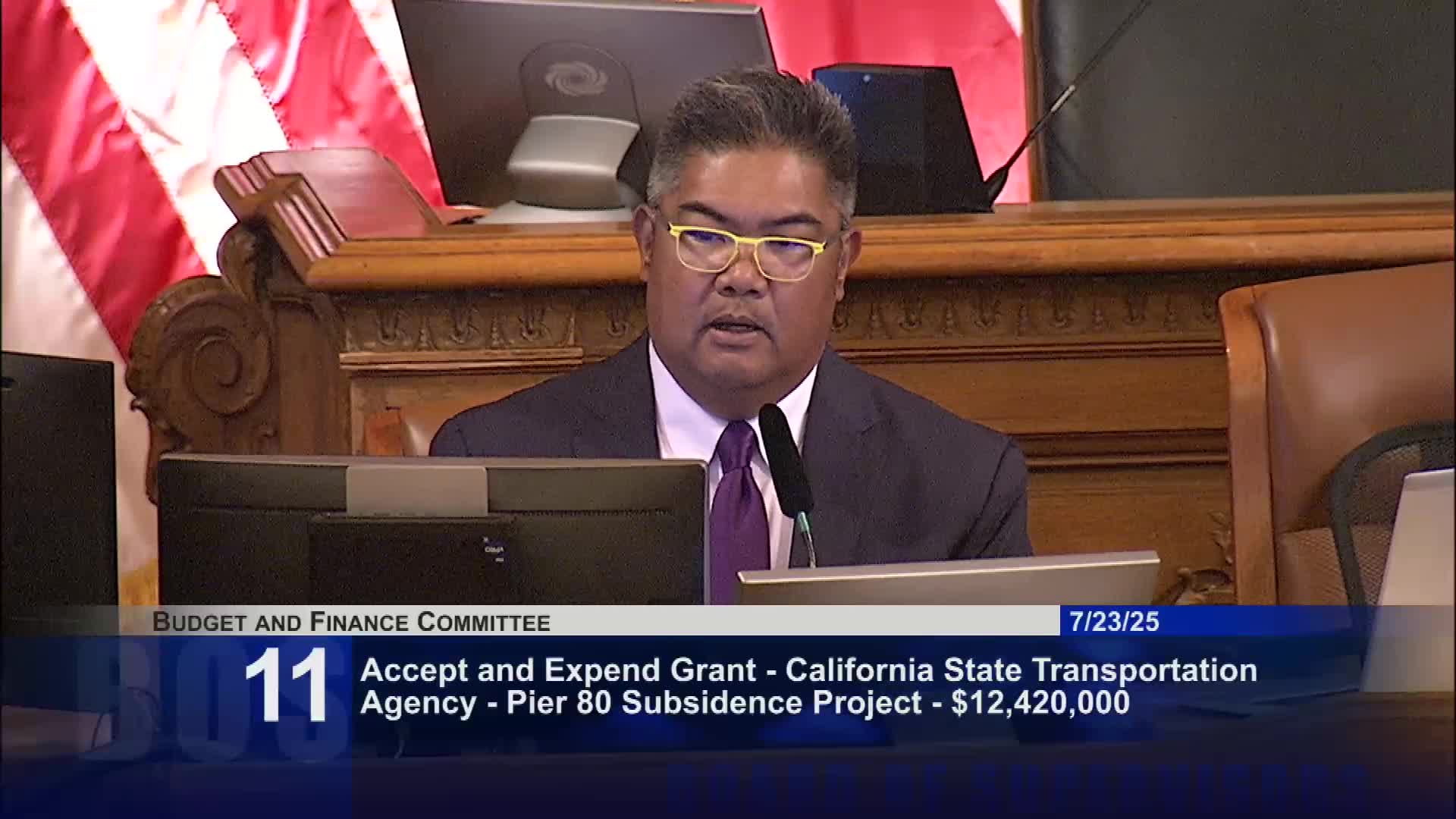San Francisco Approves $25M Grants for Self Help's Elderly Nutrition Services
July 23, 2025 | San Francisco County, California
This article was created by AI summarizing key points discussed. AI makes mistakes, so for full details and context, please refer to the video of the full meeting. Please report any errors so we can fix them. Report an error »

In a recent San Francisco County government meeting, officials gathered to discuss vital grant agreements aimed at enhancing nutrition services for the city’s older adult population. Under the warm glow of city hall lights, the Department of Disability and Aging Services (DAS) presented two significant resolutions that promise to bolster food security and health for seniors.
The resolutions, which span four years from July 1, 2025, to June 30, 2029, allocate approximately $11.1 million for congregate meals and $13.9 million for home-delivered meals through Self Help for the Elderly, a nonprofit with a long-standing commitment to serving the city's senior community. Tiffany Kearney, a program analyst and lead nutritionist for DAS, emphasized the importance of these services, particularly for San Francisco's diverse older adult population, which includes a significant number of Asian seniors. Self Help for the Elderly is recognized for providing culturally relevant meals that align with dietary guidelines, addressing common health issues such as hypertension and diabetes.
Despite the positive impact of these programs, the meeting revealed a concerning trend: the new grant agreements reflect a substantial reduction in services, with a 61% decrease in meals and a 30% drop in clients compared to previous years. This reduction raises questions about the sustainability of nutrition services as the city grapples with an aging population—San Francisco is among the oldest metropolitan areas in the U.S.
During the discussions, officials noted the higher cost per meal for Self Help compared to other providers like Meals on Wheels, attributing this to the smaller scale of operations and specialized meal preparation. The conversation highlighted the need for efficiency and potential collaboration with other organizations to ensure that the nutritional needs of seniors are met without compromising quality or accessibility.
As the meeting concluded, the committee unanimously recommended forwarding the resolutions to the full board for approval, signaling a commitment to supporting the health and well-being of San Francisco's older residents. The ongoing dialogue about food security and the challenges posed by an aging demographic will likely continue to shape future discussions and funding decisions in the city.
The resolutions, which span four years from July 1, 2025, to June 30, 2029, allocate approximately $11.1 million for congregate meals and $13.9 million for home-delivered meals through Self Help for the Elderly, a nonprofit with a long-standing commitment to serving the city's senior community. Tiffany Kearney, a program analyst and lead nutritionist for DAS, emphasized the importance of these services, particularly for San Francisco's diverse older adult population, which includes a significant number of Asian seniors. Self Help for the Elderly is recognized for providing culturally relevant meals that align with dietary guidelines, addressing common health issues such as hypertension and diabetes.
Despite the positive impact of these programs, the meeting revealed a concerning trend: the new grant agreements reflect a substantial reduction in services, with a 61% decrease in meals and a 30% drop in clients compared to previous years. This reduction raises questions about the sustainability of nutrition services as the city grapples with an aging population—San Francisco is among the oldest metropolitan areas in the U.S.
During the discussions, officials noted the higher cost per meal for Self Help compared to other providers like Meals on Wheels, attributing this to the smaller scale of operations and specialized meal preparation. The conversation highlighted the need for efficiency and potential collaboration with other organizations to ensure that the nutritional needs of seniors are met without compromising quality or accessibility.
As the meeting concluded, the committee unanimously recommended forwarding the resolutions to the full board for approval, signaling a commitment to supporting the health and well-being of San Francisco's older residents. The ongoing dialogue about food security and the challenges posed by an aging demographic will likely continue to shape future discussions and funding decisions in the city.
View full meeting
This article is based on a recent meeting—watch the full video and explore the complete transcript for deeper insights into the discussion.
View full meeting
